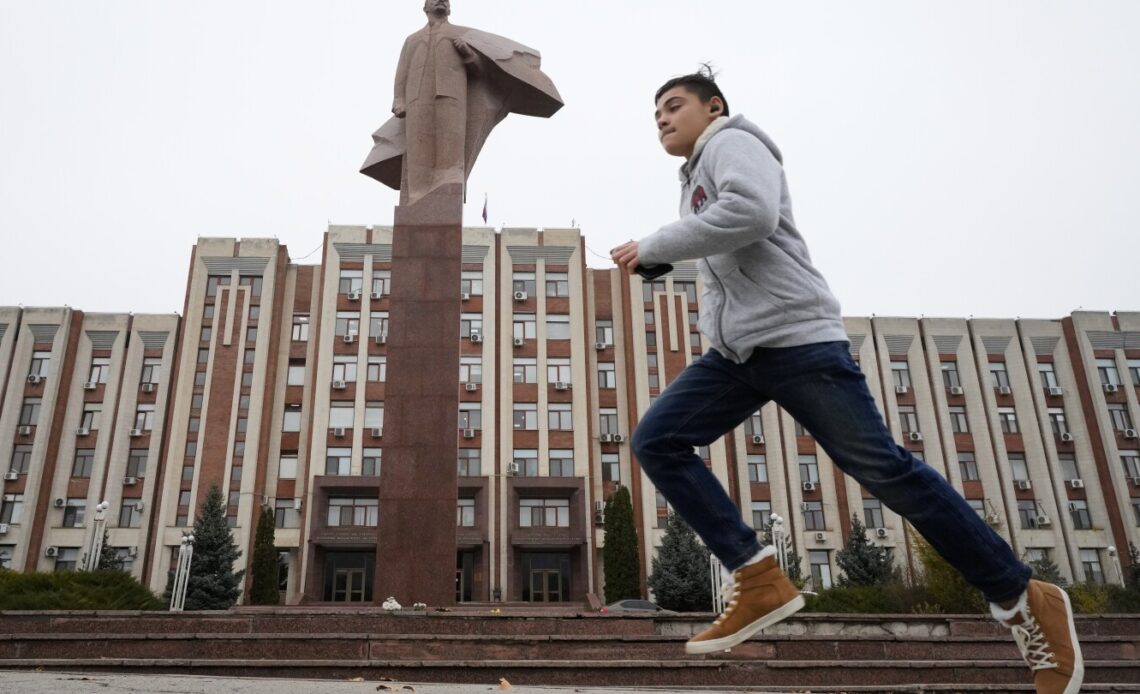Since Russia invaded Ukraine two years ago, fears have risen in neighboring Moldova that it could also be in Moscow’s crosshairs.
Like Ukraine, Moldova is a former Soviet republic that has aligned itself with the West and aspires to join the European Union. And both countries hope to eventually reintegrate Russian-speaking breakaway territories that view Moscow as their protector.
After a short war in the early 1990s, Transnistria declared independence from Moldova, where today’s pro-Western government has firmly opposed Russian President Vladimir Putin’s war with Ukraine.
Although Transnistria’s independence isn’t recognized by any U.N. member countries, including Russia, the Kremlin-friendly territory has become a source of tension during the war, especially since it is wedged between Moldova and Ukraine and is home to a military base with 1,500 Russian troops.
WHY HAS TRANSNISTRIA CAUSED ALARM?
A large majority of Transnistria’s 470,000 people speak Russian as a first language and some 200,000 are Russian citizens who feel a close connection to Russia, though most are also Moldovan citizens. In 2006, more than 95% of voters in a Transnistria referendum said they wanted to join Russia, but the ballot wasn’t internationally recognized.
Since the war in Ukraine started, several developments in Transnistria have led some to draw parallels to the separatist movement by pro-Moscow factions in eastern Ukraine that paved the way for Russia’s full-scale assault.
Just weeks after the invasion, a series of explosions rocked Transnistria. Last year, an opposition leader there who campaigned for human rights was shot to death. And this month, an empty helicopter at a military installation was destroyed in what Transnistria officials blamed on a Ukrainian drone strike but what Moldovan authorities allege was a staged explosion meant to inflame tensions.
“More such actions are planned by the Russian Federation” in Transnistria, Moldova’s Bureau for Reintegration Policies said in a statement Monday. The bureau, which works to reintegrate Transnistria into Moldova, added that with Russia unable to attack Moldova militarily, “such actions are aimed at increasing panic, inducing mistrust in society and weakening the economy.”
The separatist region also made headlines last month when authorities used a rare meeting of Transnistria’s congress to appeal to Moscow for…

